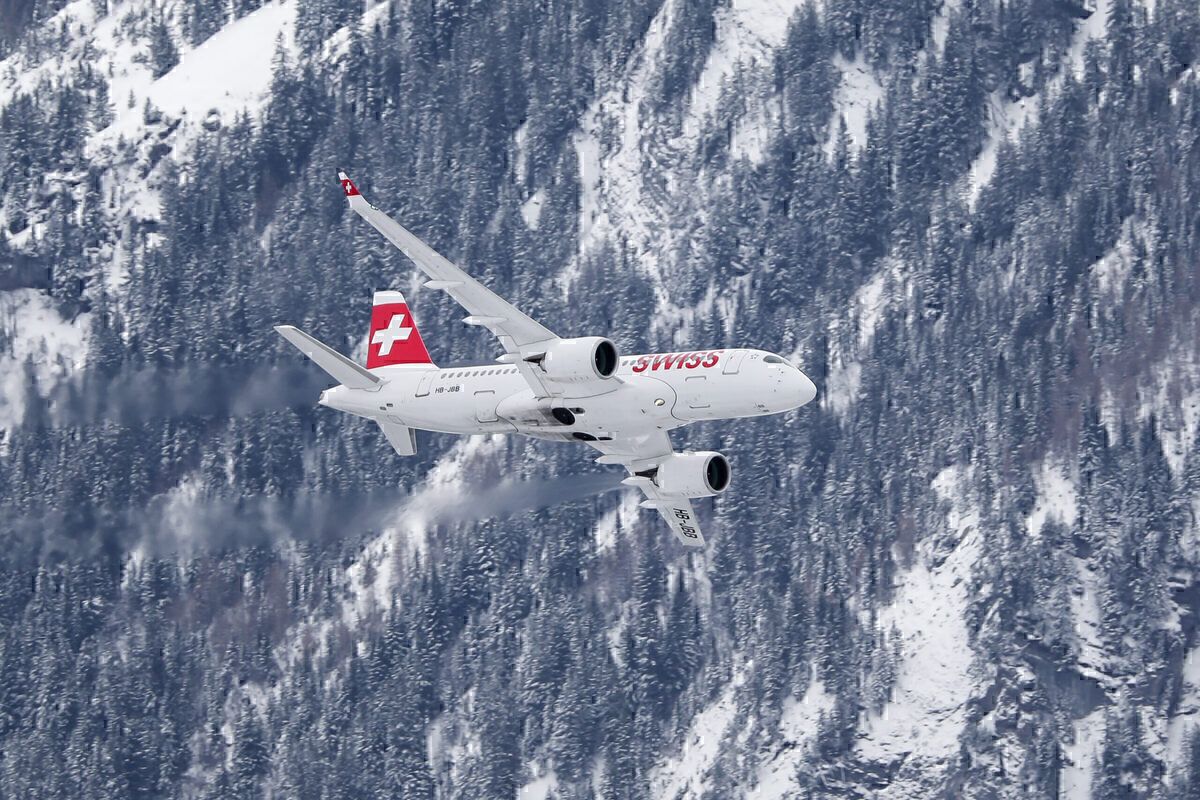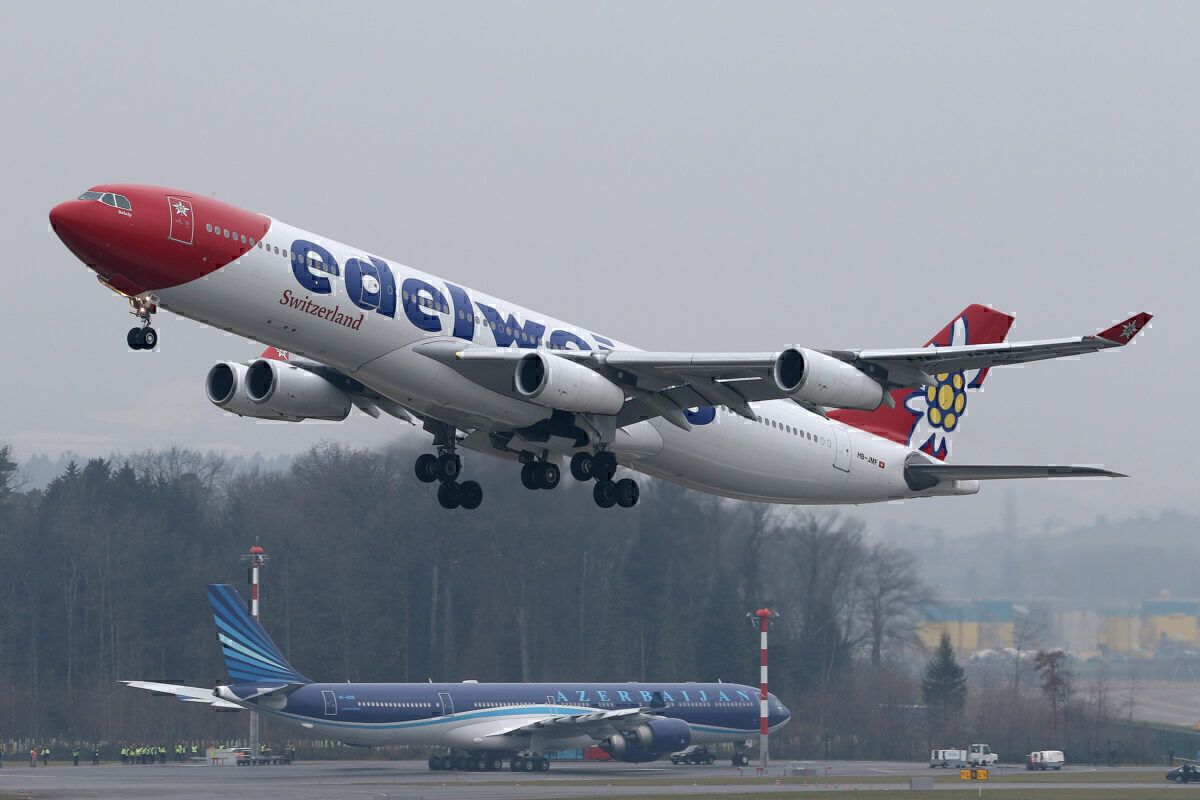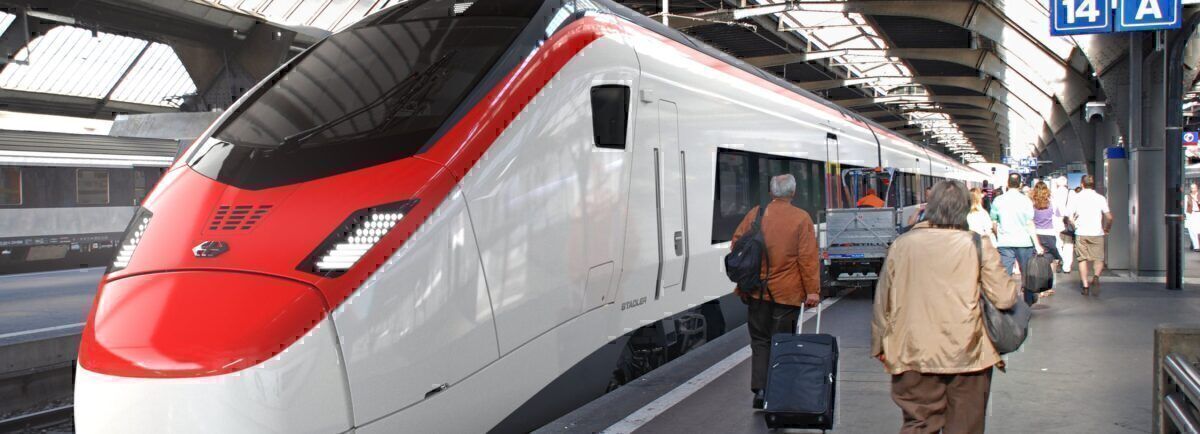As COVID-19 continues to batter the aviation industry, Swiss pilots grounded by the coronavirus could very well find themselves driving trains for the Swiss railway. Media reports suggest that Swiss and its subsidiary Edelweiss are looking into the possibility of retraining some of their pilots to drive trains.
Presently, Switzerland's railway companies Chemins de fer fédéraux suisses (SBB/CFF) and Rhetische Bahn (RhB) are being forced to leave trains sitting in the depot because of a lack of drivers. Every day, the two Swiss railway operators estimate that they are short of around 30 drivers for passenger and freight traffic.
According to French weekly political and news magazine La Point, they are looking to recruit pilots to fill this gap. To learn to drive a train, Swiss and Edelweiss pilots will need to undertake a 14- to 16-month training course, but they can be employed immediately once completed.
Stay informed: Sign up for our daily aviation news digest.
Swiss train drivers start on $6,580 a month
The starting pay for a railway driver in Switzerland is approximately around 6,000 Swiss Francs ($6,580), including fixed costs. While this might sound like a generous salary, you have to bear in mind that Switzerland is a costly place to live. Just last September, in response to a referendum, Geneva raised its minimum wage to 23 Swiss francs ($25) per hour.
Somewhat surprisingly, when you look at how other airline pilot unions operate, Swiss union Aeropers, representing around 1,300 pilots, favors the retraining.
Aeropers spokesperson Roman Kälin admits this may come as a surprise. He told Le Nouvelliste,
"But many things are very similar, such as the fascination with technology, the transport of people and goods from point A to point B, safety, or a sense of responsibility. In our eyes, this is a win-win situation. We ask our employers to think outside the box."
High-speed rail is set to boom in Europe
While driving a train might not sound very exciting compared to flying, it might prompt young people who were thinking of becoming a pilot to change their career path. The costs involved in becoming a commercial airline pilot are prohibitive, and it could mean years of flying for a smaller airline on low wages to build up experience.
According to investment banking company UBS, Europe will undergo a boom in its high-speed rail network over the next decade, with the Swiss banking group predicting 10% growth year on year. Billions of euros will be invested in new rolling stock, signals, and track as European governments modernize their country's infrastructure.
Already, we see trains replacing planes on some city to city routes, with London to Paris and Barcelona to Madrid prime examples. UBS research found that business travelers were prepared to put up with a four-hour rail journey and that leisure travelers had no problem traveling by train for six hours.
Clean air is on the agenda
During the coronavirus lockdown in spring, there was a notable difference in air quality when there were far fewer cars and trucks on the road. This was something that did not go unnoticed as Europe looks to move away from fossil fuels. The United Kingdom recently passed a bill banning the sale of gasoline and diesel-powered cars by 2030. This all points to more pressure being put on airlines and the creation of fewer jobs for pilots.
Perhaps becoming a train driver is not such a bad idea. What do you think? Please tell us your thoughts in the comments.



